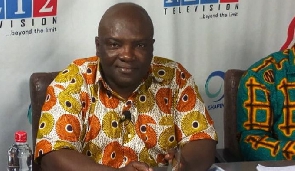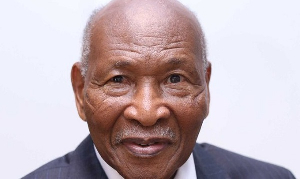Opinions of Wednesday, 17 June 2015
Columnist: Adase-Adjei, Foster
Increasing educational possibilities for every Ghanaian
Despite the numerous efforts of previous and successive governments to strengthen the educational needs of Ghanaians from the basic level upwards, there are still a lot of challenges facing the promised Free Compulsory Universal Basic Education (FCUBE) which, was launched in 1996. The aim of FCUBE is to provide the opportunity for all Ghanaians to receive free quality basic education irrespective of their geographical locations and physical abilities. In view of this, the Ghana Education Service (GES) did a fantastic job by developing a thorough implementation and sustainability strategy to keep the system running effectively. The obvious goal is to promote quality teaching and learning, foster improvement in the management of the educational sector, and empower all partners or stakeholders in support of the initiative.
Basic formal education remains very challenging to our governments of today due to the increase in some negative factors that inhibit the FCUBE programme, putting more pressure on the stakeholders involved. What do we see or hear today? Classrooms with no teachers, one teacher teaching combined classes, some teachers pursuing distance education programmes at the expense of being in the classroom, frequent absenteeism, and sometimes poor teaching and learning environment. I visited a school not too far from Kpobiman in the Greater Accra region to film a video documentary. I had the opportunity to interact with some of the teachers who were seated under a tree chatting. Surprisingly, even though these teachers had come to school to teach, none of them held a chalk or marker to teach that day.
My curiosity was heightened so I asked one of the pupils whether the day had been devoted for physical education. His answers was a big no and I asked myself whether education is a matter of demand from right holders or supply by duty bearers or better still a matter of social concern for all? Strongly, I agree with the school of thought that government doesn’t have all the solutions to our challenges because it begins with you and I. We are all part of the solutions confronting the development of our motherland, irrespective of our various political devices.
Another evidence was a programme I watched on television dubbed “Mission Ghana” that exposed the dilapidated nature of some of our basic schools within our communities. We see children crossing rivers to school, others moulding blocks during school hours, with some teachers combining more than two classes in one classroom. The question is how effective and efficient will studies under these conditions be? These anomalies have devastating consequences on national development. Most great nations did not develop just because they discovered oil or gold, as in the case of Ghana but because they invested in their human resources right from the basic level. The late Nelson Mandela’s was unmistakable that “Education is the most powerful weapon which you can use to change the world.”
We as citizens of this great nation ought to stop “the government dependency syndrome “ and think of what we can do to help mother Ghana rather than thinking of what mother Ghana can do to help us. I strongly believe in an all-hands-on-deck approach to the challenges confronting our educational system today. Basic education is vital to sustaining our democracy, improving health, conserving environmental resources, solving our power crises (Dumsor), and in the long run increasing per capita income. A critical look at our educational system may perhaps give us a better position in future performance rankings by the Organisation for Economic Co-operation and Development (OECD). This is possible if only we believe that the state of a country’s education is a predictor to the level of economic performance and poverty reduction. We can take a good cue from countries such as Singapore, which obtained independence eight years after Ghana but are today far better developed and prosperous than we are.
Over the past 25 years, ActionAid Ghana’s contribution to the FCUBE initiative has included building over 112 kindergartens, primary and Junior High classroom blocks in community basic schools, 25 libraries, 8 ICT centers and still counting. We understand that basic education is paramount in national development, hence the formation and strengthening of over 180 community and district based PTAs and School Management Committees to ensure improved education for children, especially those living in rural and deprived communities.
To address the problem of the challenge of teacher inadequacy, ActionAid Ghana has recruited 250 rural education volunteers who served as a stopgap measure for teacher insufficiency. Our regional and national boys’ and girls’ camps are other initiatives meant to keep children in school, increase their knowledge on basic human rights, and build their confidence through interactions with role models, as well as introduce them to other vocational training and skills. If we do not invest in basic education, we would have ourselves to blame because without quality education, our economy would lag behind, democratic governance will be poorer, health provision and other sensitive sectors of our economy will suffer.
To increase possibilities in basic education, there should be strategic partnerships between collaborators in the sector and partners such as teachers unions, non-governmental organisations such as ActionAid, families and community leaders. Ensuring effective teaching and learning should be supported with adequate teaching and learning materials at all times with good working conditions for all teachers, especially those in the rural communities.
When such precautionary measures are adhered to, school drop-out rate will decrease as parents who do not see the need to send their children to school would value and prioritise the education of their children, above all things. It is also expected that the lackadaisical attitude of some teachers towards the profession will be reduced. May I petition the good people of this country to appreciate the urgency of the call for quality education and contribute their material and knowledge resources to improve educational outcomes and delivery.
BY: Foster Adase-Adjei
Fundraising & Marketing Officer
ActionAid Ghana












